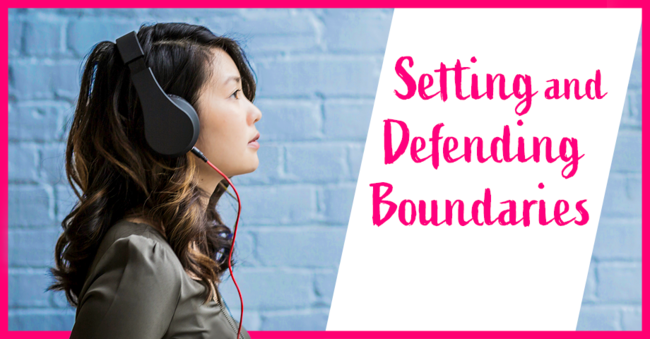
Quick Links
About MyDepressionTeam
Powered By




There is an old saying: “Good fences make good neighbors.” Having healthy boundaries in relationships is important for everyone, especially for people with a chronic condition like depression. Setting and defending boundaries allows you to protect your physical and mental health and focus on feeling your best while facing mental health challenges.
Setting boundaries can be hard. Your friends and family may not be used to you saying no or establishing limits for when and how you are available to them. They may expect you to have the same energy you had before you developed depression and symptoms like anxiety or fatigue. No matter what, you are entitled to establish the boundaries you need to maintain your emotional and physical wellbeing. Setting boundaries to take care of yourself does not make you mean or selfish – it helps you focus on what you need to do to care for your depression.
Here are a few tips for setting boundaries clearly and compassionately:
After setting boundaries, do not be surprised if you need to defend them. Some people will likely test your boundaries, especially when they are new. Expect some pushback and consider what a good response might be.
Here are some examples of boundary testing and possible responses:
After testing your boundaries a few times, most people will understand that they are well-defended and learn to respect them. If you have allies who understand the challenges of depression, ask them to help you defend your limits with others. Remember, you don’t need to apologize for setting good boundaries that help you stay healthy, manage your mental health, and feel your best while living with depression.
Here are some conversations from MyDepressionTeam about setting and defending boundaries:
"I've let my guard down and have been allowing people to walk all over me which is causing me to withdraw. I don't want to go down that deep depression road again so I'm going to reset those boundaries."
"Last time I was with my counselor, we went over my treatment goals. I reached most from the last, except the relationships with the neighbor from saying NO and setting boundaries...still working on that!"
"I can set boundaries and most people accept them. Where I need to work is when someone keeps trying to overstep or ignore my boundaries."
Have you successfully set boundaries that help you manage depression?
What tips would you recommend to help set healthy limits with others?
Share in the comments below or directly on MyDepressionTeam.
Get updates directly to your inbox.



I Want To Know My Family Is OK. But It Always Ends In A Fight Bout How I Was Not Good Enough Or How I Supposing Lied Bout Abuse
Sign up for free!
Become a member to get even more




A MyDepressionTeam Member
My family just says just do it you’ll feel better, ugggggg
We'd love to hear from you! Please share your name and email to post and read comments.
You'll also get the latest articles directly to your inbox.